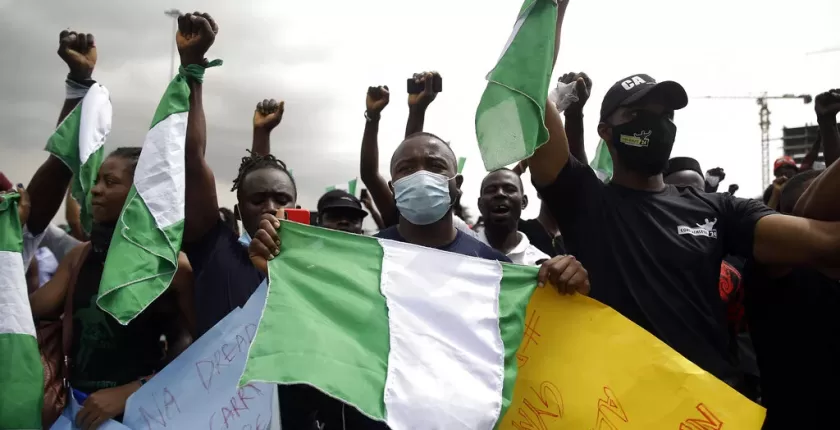Current Situation in Nigeria: Protests and the Struggle for Better Governance
Nigeria, Africa’s most populous country, is no stranger to political unrest and protests. The current situation highlights the persistent issues plaguing the nation and the Nigerian people’s growing frustration with their government. This comprehensive blog post explores the roots of the ongoing protests, the demands of the Nigerian people, the duration of the planned protests, and the broader implications for the country’s future.
The Root Causes of Protests
The recent wave of protests in Nigeria can be traced back to several longstanding issues. These include:
- Corruption: Nigeria has a long history of corruption, with public officials often accused of embezzling funds meant for public services. This mismanagement has led to a lack of trust in the government.
- Economic Hardship: Despite being rich in oil, many Nigerians live in poverty. The country’s wealth distribution is highly skewed, with a significant portion of the population struggling to make ends meet. Unemployment rates are high, and the cost of living continues to rise.
- Insecurity: The rise of insurgent groups like Boko Haram and widespread kidnappings have left many Nigerians feeling unsafe. The government’s inability to effectively address these issues has only heightened the sense of insecurity.
- Police Brutality: The #EndSARS movement brought international attention to police brutality in Nigeria. The disbanded Special Anti-Robbery Squad (SARS) was notorious for its human rights abuses, including extrajudicial killings, torture, and extortion.
The Current Protests
The protests have seen Nigerians from all walks of life taking to the streets, united in their call for change. Key demands include:
- Accountability and Transparency: Protesters are demanding that the government be more accountable and transparent in its dealings. They want to see tangible steps taken to reduce corruption and increase oversight.
- Improved Living Conditions: Calls for better infrastructure, healthcare, and education are central to the protests. The protesters seek a more equitable distribution of resources to improve the quality of life for all Nigerians.
- Security: Citizens are asking for more effective measures to ensure their safety. They want the government to take a more proactive stance in addressing the root causes of insecurity.
- End to Corruption: Protesters want stringent measures to combat corruption at all levels of government. They are calling for the prosecution of corrupt officials and the recovery of stolen public funds.
Duration of the Planned Protests
The protests are planned to continue until the Nigerian government takes concrete steps to address the issues raised. Organizers have stated that they are prepared for a prolonged struggle and have planned various phases of protests, including peaceful demonstrations, sit-ins, and online campaigns, to sustain momentum and pressure on the government.
The Government’s Response
The Nigerian government’s response to the protests has been mixed. While some officials have expressed a willingness to engage with protesters, there have been instances of violent crackdowns on demonstrations. The use of force against peaceful protesters has further fueled the anger and determination of the Nigerian people. The government’s reluctance to fully address the protesters’ demands has led to a stalemate, with both sides digging in for a long-term struggle.
The Role of Social Media
Social media has played a pivotal role in organizing and sustaining the protests. Platforms like Twitter, Facebook, and Instagram have been used to share information, mobilize supporters, and document instances of abuse. The global reach of social media has also brought international attention to the plight of Nigerians, garnering support from around the world and putting additional pressure on the Nigerian government to respond.
The Way Forward
For Nigeria to move forward, several steps must be taken:
- Government Reforms: The government needs to implement genuine reforms to address the root causes of the protests. This includes passing anti-corruption laws, improving public services, and ensuring fair resource distribution.
- Dialogue: Engaging in open and honest dialogue with protest leaders is crucial for resolving the crisis. The government should establish channels for constructive communication to understand the protesters’ concerns and work towards mutual solutions.
- International Support: The international community can play a role by pressuring the Nigerian government to uphold human rights and implement necessary reforms. Diplomatic efforts and economic sanctions could be leveraged to encourage compliance.
- Civic Engagement: Nigerian citizens must continue to engage in the political process and hold their leaders accountable. Active participation in elections, advocacy, and community initiatives are essential for driving sustainable change.
Conclusion
The current protests in Nigeria are a reflection of deep-seated issues that have long been ignored. The Nigerian people’s demands for better governance, accountability, and improved living conditions are legitimate and must be addressed. As the world watches, it is imperative for the Nigerian government to listen to its people and take meaningful steps towards creating a more just and equitable society. The path to change may be long, but the determination and resilience of the Nigerian people offer hope for a brighter future.

